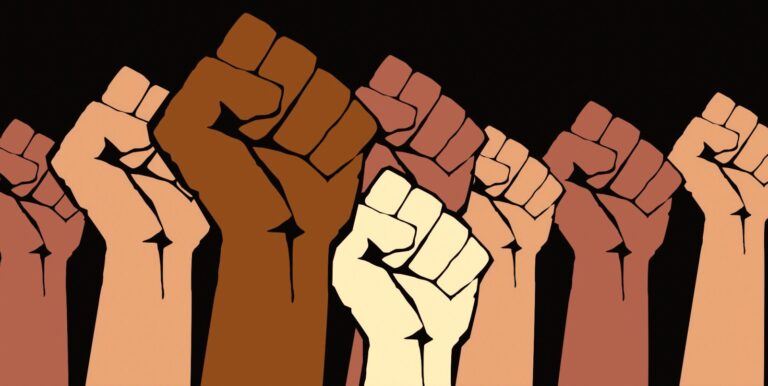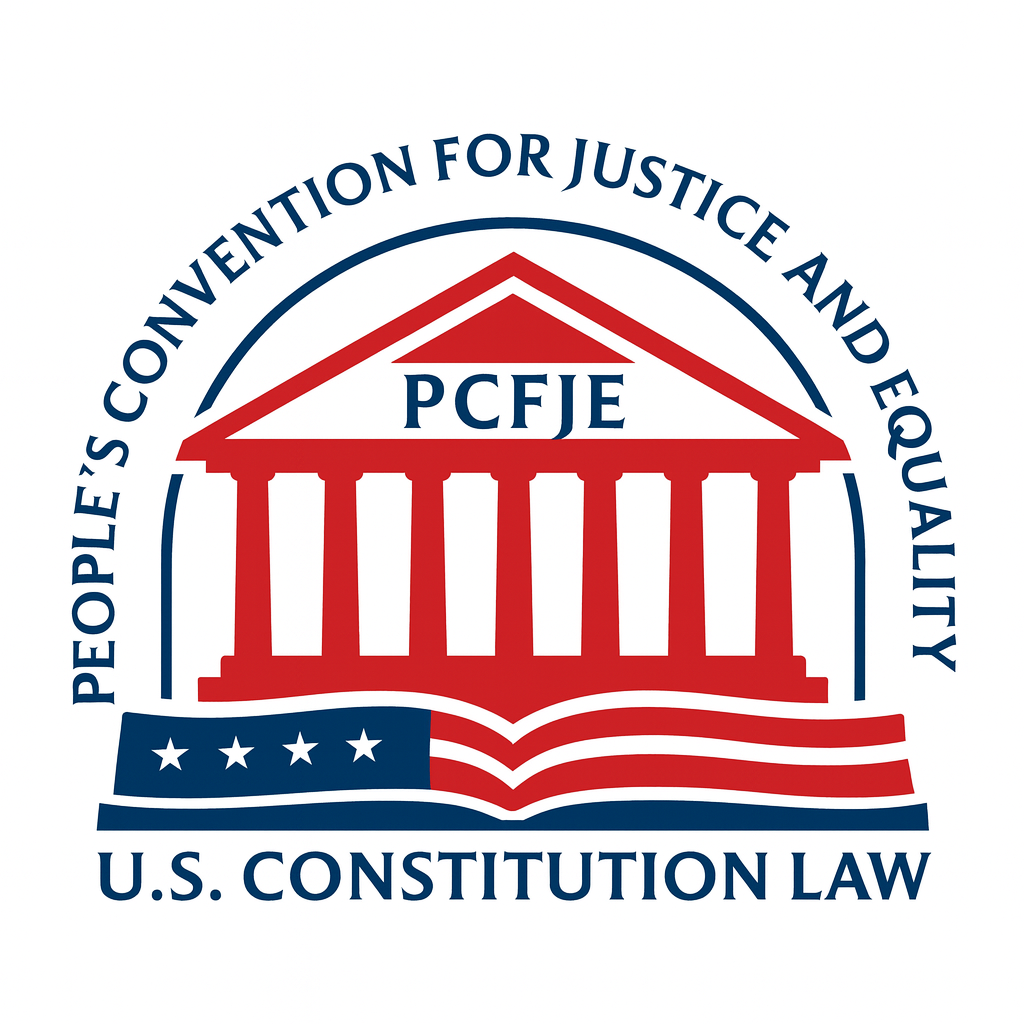
Introduction
In every great struggle for liberty, justice, and equality, it’s not just laws or votes that drive change, it’s people. More specifically, it’s the collective actions of informed and empowered communities working through organized efforts to shine light on injustice, advocate for reform, and reinforce the fundamental principles of democracy.
This is where civic and social organizations step in, often unseen, yet critically important forces in protecting constitutional rights and ensuring that no voice goes unheard.
From the early days of American democracy to the civil rights era and into the modern fight for social justice, these organizations have proven to be at the center of every lasting movement. Whether fighting to end discriminatory laws, championing equal access to voting, or demanding criminal justice reform, civic and social organizations have acted as the bridge between the people and the policies that govern them.
They not only advocate for the protection of civil liberties, but also serve as watchdogs, educators, legal allies, and mobilizers for social and political change.
Across the country, these groups operate on various scales, from local neighborhood coalitions and state advocacy groups to national forces like the ACLU or NAACP.
Each plays a pivotal role in identifying injustice, responding to unconstitutional laws, fostering civic participation, and advancing movements for change. In many cases, they are the first line of defense when there’s a violation of constitutional rights, especially for communities that have been historically marginalized or disenfranchised.
But their work doesn’t stop at advocacy. Many also drive essential legislative efforts around constitutional reform, support litigation to uphold equal protection and due process, and train the next generation of activists and organizers.
In this guide, we’ll explore the transformative role of civic and social organizations in defending people’s rights, how they influence policy through the Article V amendment process, and how individuals can support or even collaborate with these groups to help build a more just future.
What Are Civic and Social Organizations?
Civic and social organizations are nonprofit or community-based entities focused on advancing the common good, often through engagement, education, policy reform, and social services. These organizations may include:
- Public interest law centers
- Racial justice advocacy groups
- Voting rights organizations
- Civil liberties watchdogs
- Grassroots community networks
What unites them is their belief in the value of constitutional rights and their work to ensure those rights are accessible, respected, and upheld for all people.
How These Organizations Protect Constitutional Rights
1. Legal Advocacy and Constitutional Defense
One of the most critical functions of these organizations is legal advocacy. Many offer legal representation, file lawsuits, or challenge unconstitutional laws that infringe on constitutional protections such as due process, equal protection, or freedom of speech.
Groups like the ACLU and Southern Poverty Law Center have built legacies around using the courts to confront policies that violate freedoms. Whether it’s overturning voter suppression laws or challenging wrongful arrests, their mission is clear: to ensure that people’s rights are protected regardless of race, gender, religion, or income.
This legal work often leads to landmark rulings that protect not just one individual, but entire populations.
2. Monitoring Systems and Holding Power Accountable
Civic society organizations often act as governmental watchdogs, monitoring legislation and executive actions for civil rights implications. They track proposed bills, examine their language, and assess potential risks to constitutional rights.
When problematic legislation is identified, such as policies that erode due process or fail to meet the standards of equal protection, these organizations mobilize quickly, generating public awareness, lobbying lawmakers, and building legislative resistance.
Fueling Grassroots Political Movements
From Advocacy to Activism
Beyond the courtroom and legislative chambers, civic and social organizations are powerful enablers of community organizing. They often work closely with individuals and coalitions seeking to launch or support a grassroots political movement focused on civil rights, environmental justice, educational reform, and more.
They provide strategic guidance, capacity-building, and resources tailored to both seasoned activists and everyday citizens wanting to take a stand. For anyone eager to learn how to start a grassroots political movement, connecting with one of these organizations is often the first, and most important, step.
Citizen Empowerment and Education
Education is crucial. Many people remain unaware of their rights or how to take legal or civic action when those rights are threatened. That’s why groups involved in justice advocacy regularly host workshops, publish guides, and hold town halls to raise awareness about issues like racial profiling, voting laws, digital privacy, and government reform proposals.
Empowering citizens, especially marginalized populations, ensures sustained activism and an informed society equipped to defend freedom.
Combating Unconstitutional Laws and Rights Violations
In a functioning democracy, no law should infringe on one’s legitimate constitutional rights. Yet we’ve seen time and time again how certain legislations, often passed hastily or with political motivation, can cross that line. These are known as unconstitutional laws, and they may target immigrants, suppress votes, restrict speech, or bypass the courts.
When they arise, civic and social organizations respond quickly. Whether it’s filing an emergency injunction, launching a media campaign, or mobilizing a citizens’ movement, their work helps halt or reverse the harm caused.
For example, civil rights groups played a central role in combatting gerrymandering tactics and discriminatory voter ID requirements, using constitutional claims around equal protection and due process to argue their legality before judges.
Driving Systemic Change Through Reform
Supporting Constitutional Reform and the Article V Process
Sometimes a single lawsuit or law isn’t enough. Long-term protection of civil liberties often requires deeper reform, especially for systemic issues like criminal justice, surveillance, campaign finance, or electoral processes. In these cases, advocacy groups may pursue formal constitutional reform, advocating for amendments or comprehensive changes to existing structures.
One route for change is the Article V amendment process, which allows states to play a direct role in proposing amendments to the Constitution through a national convention. While rare, this mechanism has gained attention as activists and lawmakers alike look for democratic paths toward permanent reforms, like clarifying civil liberties in a digital era or codifying equal justice standards into federal law.
A proposed constitutional reform act could address a range of issues, including judicial bias, police accountability, and voting rights protections, all areas where rights and freedoms intersect.
Launching and Supporting Justice Reform Movements
Among the most impactful contributions of these organizations is their role in building and sustaining long-term justice reform movements. These movements aim to correct widespread injustices, such as mass incarceration, police brutality, deportation policies, or wealth inequality, that disproportionately affect certain demographics and often contradict the principles of equal protection and due process.
Through lobbying, litigation, public awareness campaigns, and coalition-building, these organizations push for government reform that is transparent, just, and grounded in the Constitution. They’ve had measurable impact, from sentencing reforms to the dismantling of discriminatory policing practices.
Connecting to the Larger Reform Landscape
The Power of Coalitions and Citizens’ Movements
When civil society stands up, change happens faster. A wide-reaching citizens movement, supported by legal advocates, educators, and community leaders, can transform local concerns into national debates. Historically, it was these very efforts that led to the end of segregation, the passage of the Voting Rights Act, and the legalization of same-sex marriage.
These efforts illustrate not just the need to protect civil liberties, but the effectiveness of collective organization. And today, new movements continue that legacy, building platforms to stand for equality, justice, and the full realization of people’s rights.
Inspiring a New Generation of Reformers
One of the lasting legacies of civic and social organizations is their ability to inspire. Through internships, leadership fellowships, and community alliances, they cultivate the next generation of civil rights leaders. These young voices are leading campus protests, contributing to policy think tanks, and organizing marches in cities nationwide, often becoming the architects of the next reform movement.
Conclusion: Protecting Rights Requires Empowered Communities
The protection of constitutional rights is not a task for courts alone. It’s a collective responsibility, held by citizens, lawyers, educators, students, and most effectively, by the tireless work of civic and social organizations who commit themselves daily to justice.
From challenging unconstitutional laws to pushing for constitutional reform, helping communities respond to a violation of constitutional rights, or simply educating the public about equal protection, these organizations are champions for democracy.
Their work ensures that when one person’s liberty is under threat, there is a larger body ready to defend it. Through public mobilization, legislative strategy, court challenges, and grassroots political movements, they keep pressure on systems of power and breathe life into the promises of justice.
Today, more than ever, their work is vital. So whether you support their work, volunteer, donate, or become part of a citizens’ movement yourself, know that these organizations are, and will continue to be, the essential safeguard of civil rights advocacy, equal justice, and the enduring fight to protect civil liberties in America.
FAQs
1. What are civic and social organizations and what do they do?
They are nonprofit groups that focus on promoting the public good through education, legal support, advocacy, and civic engagement to protect constitutional rights and advance social justice.
2. How do these organizations help fight unconstitutional laws?
They challenge unconstitutional laws in court, educate the public, lobby lawmakers, and support justice reform movements that defend people’s rights and uphold equal protection.
3. What role do they play in large reform movements?
They often initiate or support a reform movement or citizens’ movement, offering resources, training, and legal assistance to create real change.
4. How does the Article V amendment process relate to reform efforts?
Some civic society organizations advocate using the Article V amendment process to push for constitutional reform on issues like electoral fairness or enhanced due process protections.
5. How can I get involved with civic and social organizations?
Check local directories for advocacy nonprofits, volunteer for community campaigns, support civil rights advocacy, or join a grassroots political movement working toward the same values you care about.
